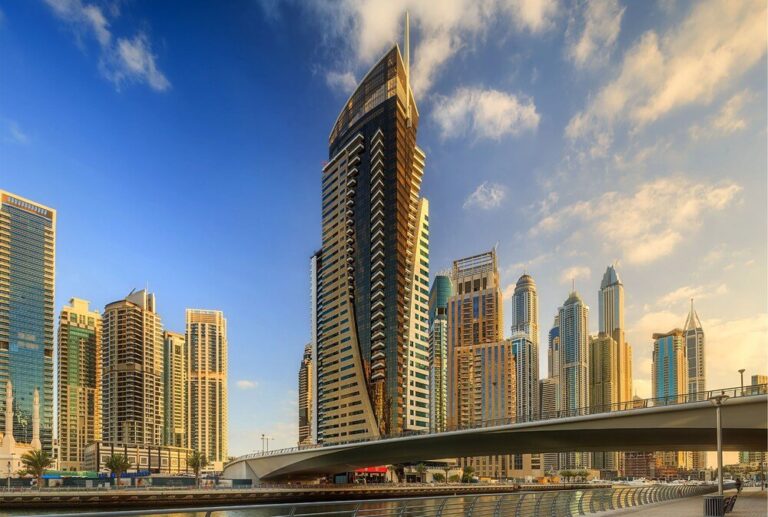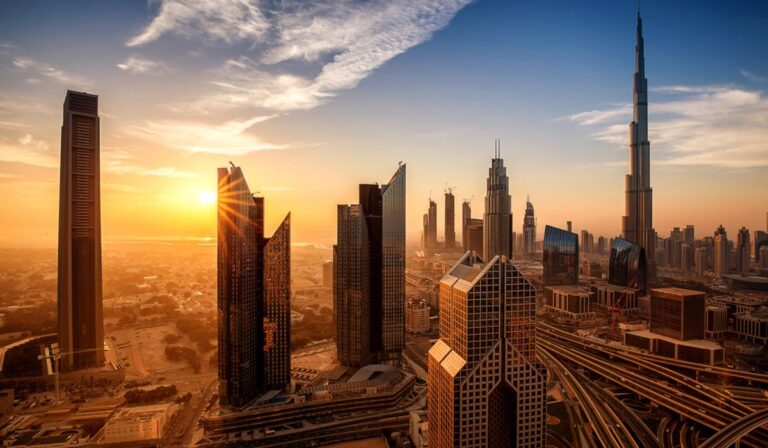Commercial vs Residential Property in Dubai: Which Investment Brings Better Returns?
Looking to invest in Dubai realty but confused between office and residential space? Fear not, you’re not alone. With its income-tax-free economy, world-class skyline, and investor-friendly policies, Dubai continues to attract thousands of Indian investors every year. Whether you desire an upscale apartment right in front of the Burj Khalifa or a retail space in an upscale business district, the options in Dubai Real Estate are endless.
But in investment return, which of the two really offers the better value? Let’s shed light on the fundamental distinctions between Dubai residential and commercial properties so that you can make the savviest decision for your money.

Understanding the Basics Of Dubai Real Estate
Residential Property
Residential homes are homes that are designed for living, like villas, apartments, and townhouses. These are bought mostly to rent to families, single people, or as a personal home.
Commercial Property
Commercial properties include office spaces, stores, warehouses, and business buildings. They are rented out to companies or businesses.
1. Cost of Investment
Dubai’s residential properties are generally cheaper to purchase than commercial properties. You can get a low-cost studio apartment for as little as AED 500,000 (~₹1.1 Cr). whereas Commercial properties tend to be more expensive. A good office or shop in the central area can set you back more than AED 1 million (~₹2.2 Cr).
Verdict: Residential is the smart choice for the Dubai Real Estate investment if you are a beginner in investments and are looking for budget budget-friendly option.
2. Rental Yields
Dubai Real Estate is known for its higher rental returns, and residential rental yields average between 5% to 7% annually. However, Commercial properties yield 7% to 10% or more, depending on location and type of property. For example, a retail shop in Dubai Marina or Business Bay can generate higher returns.
Verdict: Commercial earns more rent over the long run.
3. Tenant Turnover & Vacancy Rates
If you invest in a residential unit, even though it is easier to lease to families or individuals, they might switch residences frequently. This happens due to a change in employment, visa issues, or tastes. This causes higher vacancy rates. However, in commercial property, businesses sign 3–5 years (or longer) leases, so there is more stable income and less risk of vacancy.
Verdict: If you are looking for a more stable income, then commercial real estate is your ideal option.

4. Maintenance & Management
It is simple to handle residential property as it does not require much technical information. Most Indians in Dubai, or NRIs, appoint property managers to negotiate in Dubai Real Estate. Commercial spaces require more intervention, technical maintenance, and periodic customization according to the requirements of the tenant (e.g., restaurant or salon layout).
Verdict: If you are looking for a property that is easy to manage, then you should opt for the residential units in Dubai.
5. Market Demand & Liquidity
Low-cost apartments are always in demand in Dubai. So, selling a residential property is also relatively easier than selling a commercial one. Commercial properties are a little tricky and can be more difficult to sell unless they are well located or already occupied by popular brands.
Verdict: Residential real estate has higher demand and is easier to liquidate.

6. Government Regulations & Ownership For Dubai Real Estate
Dubai allows 100% foreign ownership of property in designated freehold areas. Residential and commercial properties are both open to Indians. But, Residential properties are much easier to purchase with more financing options available from UAE banks. While in commercial real estate, there are limited financing options, and it also requires making a higher down payment, and gives you a higher interest rate from the bank loan.
Verdict: Residential is simpler for Indian investors.
7. Risk Factor
Residential property has lower risk, especially in the long term. Even during times of downturn, humans need a place to reside. Meanwhile, Commercial property has higher risk and it relies upon business success, market trends, and the economy. For instance, during COVID-19, the majority of offices and stores were empty.
Verdict: Residential is safer in times of risky periods.

8. Capital Appreciation
Residential properties like JVC, Dubai South, and Dubai Hills saw good appreciation over the last three years due to upcoming infrastructure and demand for budget housing. For Commercial property, prime areas like Downtown, Business Bay, or DIFC see higher appreciation at the expense of a higher entry price.
Verdict: Both offer capital growth; it is a matter of your budget and strategy.
What should Indian investors choose?
Choose residential property for Dubai Real Estate investment if you are:
A new investor in Dubai
Have a limited budget
Require easy maintenance
Want a lesser risk
Commercial property is the ideal investment choice for you if you are:
Experienced in investments
Have a good budget
Require enhanced returns
Fine with some risk and commitment

Final Verdict: Which One Is Better?
There isn’t a one-size-fits-all solution. It will depend on your investment goals, tolerance for risk, budget, and desired level of participation in the process.
Residential = Safer, easier, and best for beginners
Commercial = More money and effort required, but more returns, more long-term stability
Conclusion
The Dubai Real Estate sector continues to be an Indian investor’s goldmine, thanks to its warm growth, investor-friendly policies, and global appeal. Whether you prefer the comfort of residency or commerce returns, the key is in the market insight, being aligned with your financial goals, and looking at the long-term target. With its prosperous expat community, robust infrastructure, and post-Expo boost, Dubai tops the chart as one of the smartest real estate investment options for Indians in 2025 and the years ahead.

